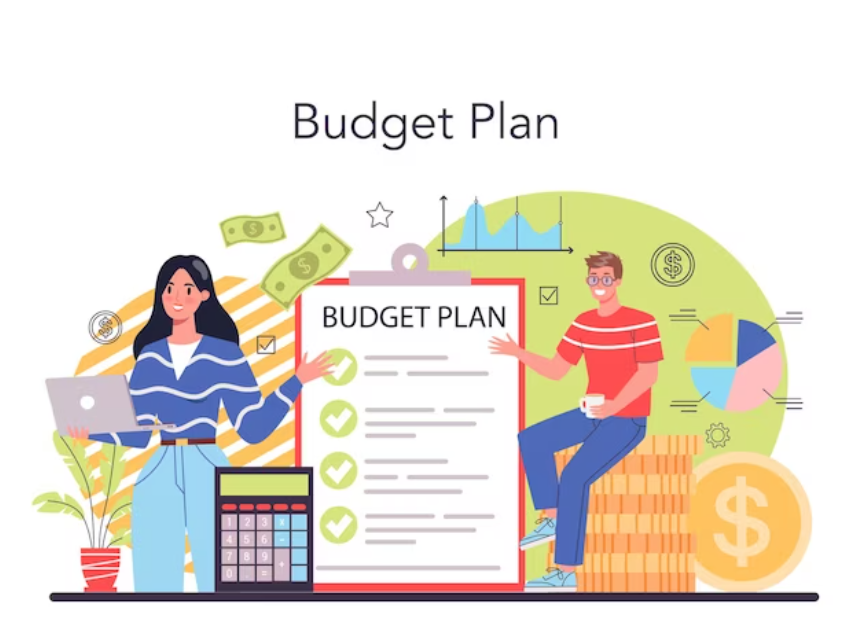Managing personal finances effectively sometimes looks like a daunting task, especially when you have multiple bills, credit card debt, and limited budgets. If you have a diverse investment portfolio, it is important to manage personal finances and track all your assets and returns effectively. However, with the right strategies and techniques, anyone can take control of their finances, start building a brighter financial future, and better manage personal finances effectively.

Here, we will explore some effective ways to manage personal finances in more detail, with examples of strategies like creating a budget, tracking expenses, saving money, and avoiding debt. Before that, we will try to understand the benefits of managing personal finances efficiently.
Benefits of Managing Personal Finance Efficiently
Managing your personal finances efficiently can have numerous benefits, including:
- Reduced stress and anxiety: When you’re on top of your financial game, you’ll feel more in control and less stressed about money-related issues. This can lead to improved mental health and well-being.
- Increased savings: By creating a budget and sticking to it, you can save more money over time, which can help you achieve your long-term financial goals, such as buying a home or retiring comfortably.
- Improved credit score: Paying bills on time and keeping debt levels low can help improve your credit score, which can make it easier to get loans or credit cards in the future.
- More disposable income: With an efficient financial plan, you’ll be able to allocate more money towards discretionary spending, hobbies, travel, or other things that bring you joy.
- Better prepared for unexpected expenses: Having an emergency fund in place can help you cover unexpected expenses, such as car repairs or medical bills, without going into debt.
- Ability to invest wisely: With a solid understanding of your financial situation, you can make informed decisions about where to invest your money for growth and returns.
- Achieving financial independence: By living below your means and saving aggressively, you can work towards achieving financial independence and reducing your reliance on others for financial support.
Now, let’s explore important tips and strategies to manage personal finance effectively:
I. Create a Budget to Manage Personal finances effectively
One of the best ways to manage personal finances effectively is to create a budget. There is always a time when it becomes difficult to handle all expenses and bills without maintaining a proper budget, and you wonder how to manage personal finances effectively. There are numerous applications that help you in easily creating and tracking the budget. You can utilize them to ease your dreadful task.

In such stressful situations, when you face challenges in tracking your expenses and returns, maintaining a budget, updating it, and tracking it on a regular basis becomes your savior. Here are some tips for creating a budget:
- Start by tracking your income and expenses to determine how much money you have coming in and going out each month. You can further explore how to crеatе a budgеt in 5 simple Stеps.
- Categorize your expenses into necessary (housing, utilities, groceries) and discretionary (entertainment, travel, hobbies) spending.
- Make sure to include all sources of income, including part-time jobs, freelance work, and any other side hustles.
- Use a budgeting app or spreadsheet to make it easier to track your spending and stay organized.
Let’s understand this with an example:
Example: John makes $40,000 per year and has $15,000 in student loan debt. He decides to create a budget that includes his fixed expenses (rent, car payment, insurance), variable expenses (groceries, gas, entertainment), and savings. After analyzing his spending habits, he determines that he needs to cut back on dining out and increase his savings rate. With this newfound understanding, John creates a budget that allows him to pay off his student loans faster while still enjoying some of the things he loves.
Learn More about how to create a budget in 5 simple steps here.
II. Track Expenses: Best way to manage personal finance
Once you have created a budget template to manage personal finances and started updating it, tracking your expenses on timely basis is quite critical.

Tips to follow:
- Keep track of every purchase, no matter how small, using a budgeting app or spreadsheet.
- Record both necessary and discretionary expenses to see where your money is going.
- Compare your actual spending to your projected budget to identify areas where you need to cut back.
- Use cash instead of credit cards whenever possible to help you stick to your budget and avoid overspending.
Example: Sarah tracks her daily expenses using a budgeting app and discovers that she is spending too much on coffee and lunches out. She decides to bring her lunch to work and switch to a more affordable coffee shop to save money and eat healthier. By tracking her expenses, Sarah is able to adjust her budget and make changes that benefit her overall financial situation. In this way, Sarah is able to better manage personal finances.
III. Save Money: One of the 5 Money Management Tips
If you are planning to manage personal finances effectively, saving enough money is very important. One should know for what he or she is planning to save, whether it is to buy a home, planning for vacations or retirements, and manage personal finances.
Tips to follow:
- Set clear financial goals, whether it’s saving for a vacation, retirement, or a major purchase.
- Automate your savings by setting up automatic transfers from your checking account to your savings account.
- Take advantage of high-yield savings accounts or brokerage accounts that offer higher interest rates.
- Avoid dipping into your savings for non-emergency purchases to avoid eroding your nest egg.
Example: Michael sets a goal to save enough money for a down payment on a house within five years. To reach this goal, he starts by opening a high-yield savings account and automating regular transfers from his checking account. He also increases his contributions over time to maximize his returns. By saving regularly and taking advantage of compound interest, Michael is able to meet his financial objective and buy a home sooner than expected.
IV. Avoid Debt
For better manage your personal finances effectively, follow below tips:
- Credit cards can be tempting, but they often come with high interest rates and fees.
- Try to avoid using credit cards unless it’s absolutely necessary, such as making a large purchase or taking advantage of rewards points.
- If you do use credit cards, make sure to pay off your balance in full each month to avoid accumulating interest charges.
- Consider using a debt repayment plan if you find yourself struggling to pay off debt on your own.

Example: Rachel tries to avoid using credit cards except for occasional big purchases, such as holiday shopping or a car repair. When she does use them, she pays off her balance in full each month to avoid interest charges. However, one day she finds herself facing a medical bill that she cannot cover with her current savings. Instead of turning to credit cards, Rachel applies for a debt consolidation loan to pay off her medical debt and focuses on one larger payment rather than several smaller ones and in this way Rachel could manage personal finances effectively by avoiding debt and relying on better option for the needs.
Conclusion:
When you plan to manage personal finances effectively, effective personal finance management involves creating a budget, tracking expenses, saving money, and avoiding debt. By implementing these strategies, individuals can take control of their finances and build a stronger financial future. Whether it’s cutting back on discretionary spending, increasing savings, or avoiding credit card debt, everyone can make positive changes to their financial lives. Remember, managing personal finances is a continuous process that requires discipline, planning, and smart decision-making. By following these tips and staying committed to your goals, you can achieve greater financial stability and peace of mind.
You can share this article with your connections and the interested audience by using below social share buttons:



